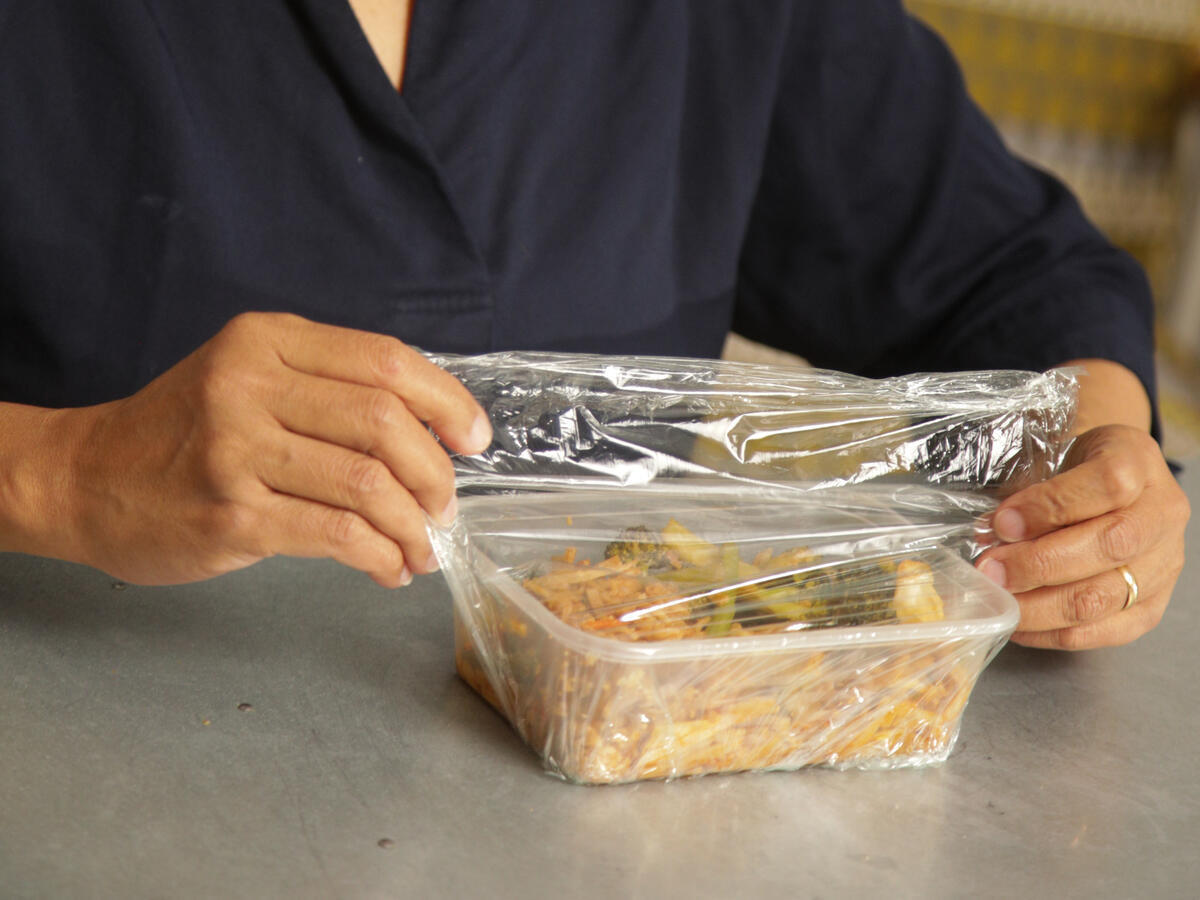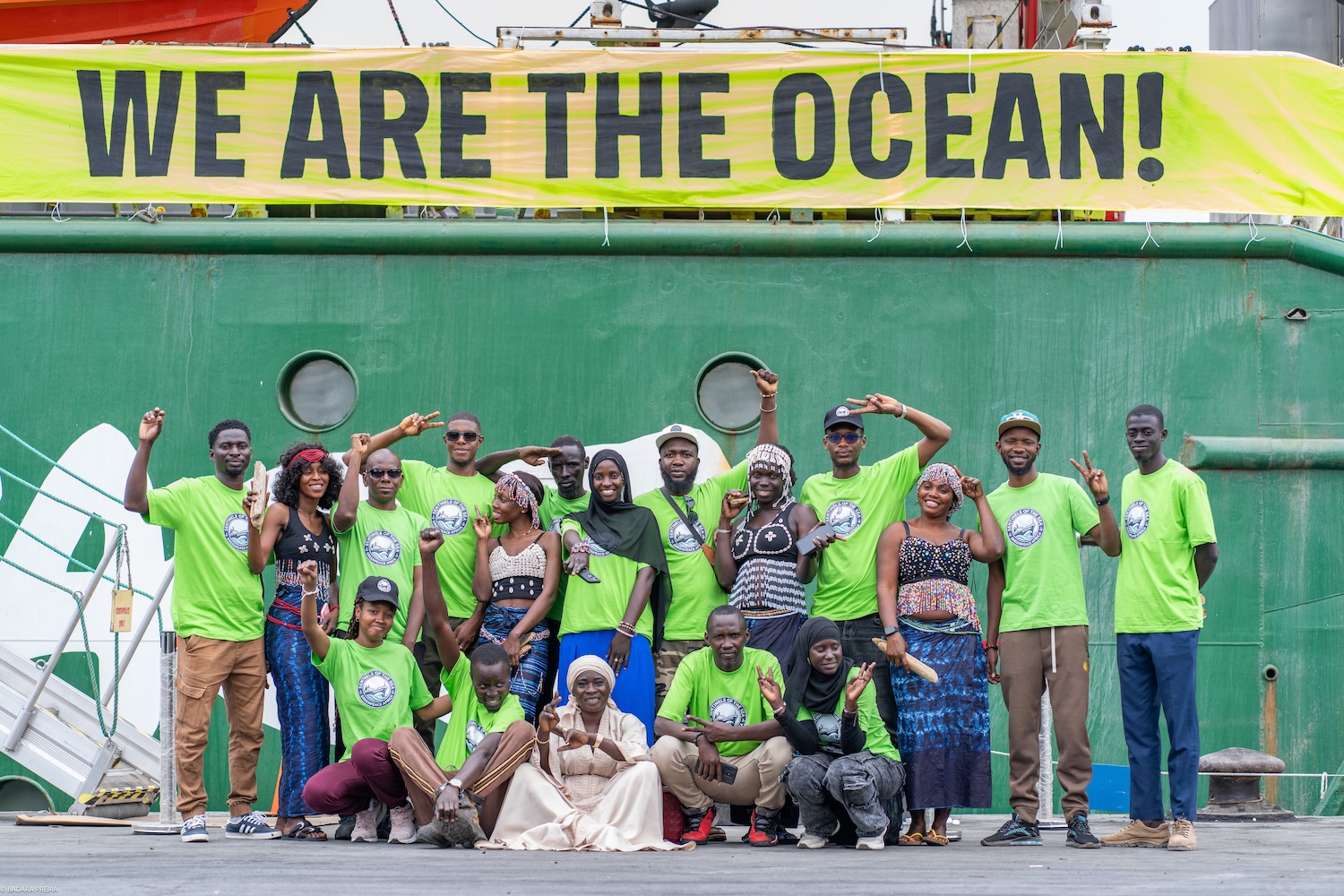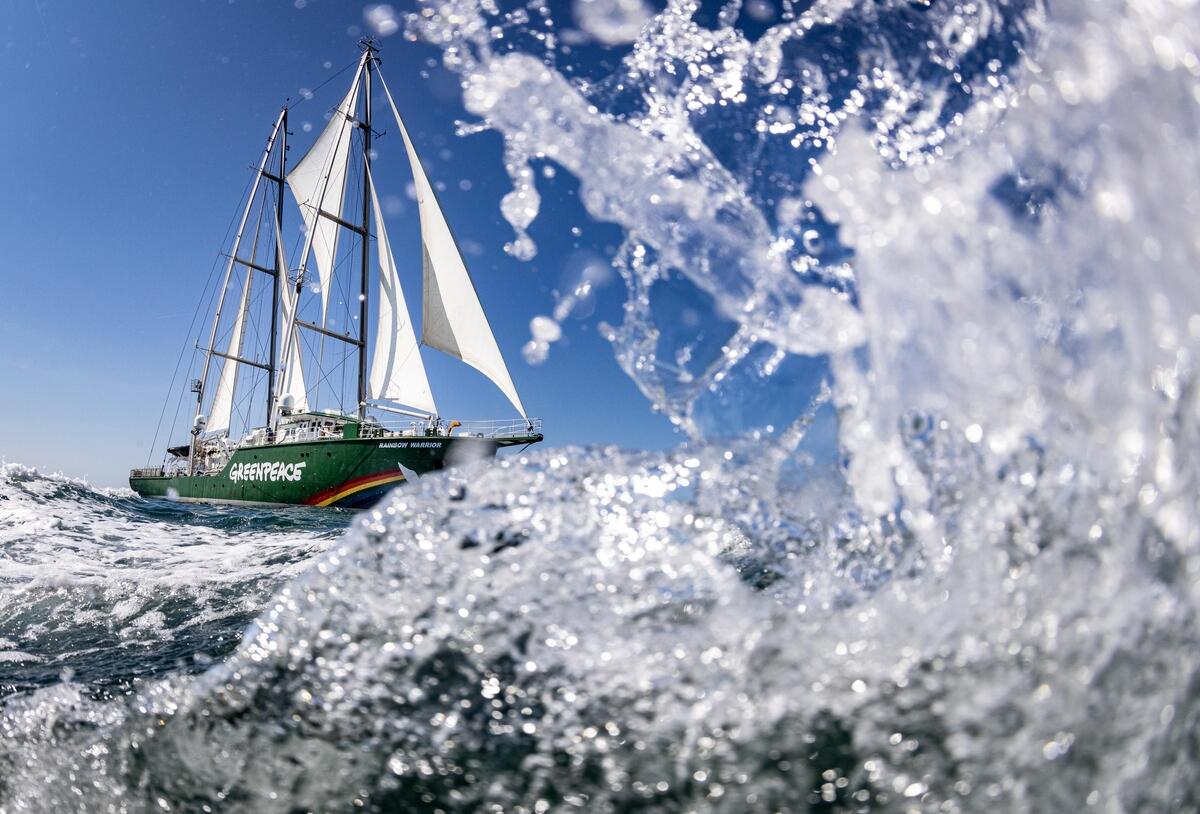Lagos, Nigeria — Greenpeace Africa and the Nigeria Climate Justice Movement strongly reject the self-serving Manufacturers Association of Nigeria’s (MAN) opposition to the proposed ban on single-use plastics in Lagos State. We stand firmly with the Lagos State Government in its bold move to tackle plastic pollution—an urgent environmental and public health crisis.
MAN’s claim that the plastics ban would harm Nigeria’s petrochemical and manufacturing sectors, increase unemployment, and worsen poverty is not only misleading, it ignores the environmental urgency and economic opportunity that such a policy presents. MAN has made suggestions on recycling” and “waste management” as alternatives to the ban. We state clearly: that is corporate greenwashing.
This is not an attack on business, it is a call to evolve. The proposed ban is a necessary intervention to protect public health, restore ecosystems, and unlock new opportunities through innovation and sustainable production. Manufacturers now stand at a crossroads: the chance to pioneer sustainable innovation or risk being left behind in a rapidly evolving global market.
Nigeria generates an estimated 2.5 million tonnes of plastic waste every year. Less than 10 percent of this is recycled. For decades, plastic production in Nigeria has operated under the veil of “industrial progress.” But progress for who? While a few manufacturers celebrate quarterly profits, millions of Nigerians are forced to live with the aftermath.
The rest clogs drainage systems, pollutes coastlines, poisons food chains, litters communities, and contributes to flooding and disease outbreaks. Most single-use plastics, such as carrier bags and styrofoam, are not designed to be recycled and often end up in landfills, oceans, or incinerated—releasing toxic chemicals into the environment.
Plastic pollution is not just an environmental crisis. It is a human rights issue. You cannot recycle your way out of a problem you are actively expanding.
Communities located near petrochemical plants and waste disposal sites are exposed to dangerous pollutants that increase the risk of cancer, respiratory diseases, and developmental disorders. These health burdens fall disproportionately on low-income and marginalised communities. Continuing with business-as-usual is no longer an option.
MAN’s assertion that bans devastate industries is contradicted by real-world evidence. In Kenya, the 2017 plastic bag ban led to the growth of new businesses in the production of reusable bags and packaging. It did not result in mass layoffs, but rather a wave of job creation and local innovation. In Lagos, the 2024 ban on styrofoam and selected single-use plastics has already encouraged entrepreneurs to explore safer alternatives.
Greenpeace Africa calls on the Lagos State Government to maintain its leadership and accelerate the implementation of the proposed ban. The state can support a just transition by offering incentives to manufacturers that invest in safe, affordable, and scalable alternatives. This will help build local industries, reduce production costs over time, and ensure accessible solutions for informal traders and everyday consumers.
The Manufacturers Association of Nigeria must recognise that the future of business lies in sustainability. We reject the tired narrative that environmental regulation threatens livelihoods. The trope has been weaponised for decades by fossil fuel lobbyists and polluters worldwide.
Reuse and refill systems, biodegradable packaging, and circular economy models offer pathways for growth that align with both market trends and public expectations. It is time to move beyond outdated arguments and embrace innovation that benefits people and the planet.
As Nigeria plays a key role in global negotiations for a binding plastics treaty and holds significant influence within ECOWAS, it must lead by example. Domestic policies must reflect the ambition the country presents on the international stage.
You cannot call for global action on plastic pollution while resisting local change. Nigeria’s credibility and leadership depend on what we do at home. This ban is a vital step in the right direction.
Signed by;
1. BluerAfrica
2. African Research Centre for Climate and Environmental Justice (ARCCEJ)
3. Corporate Accountability and Public Participation Africa (CAPPA)
4. Centre for Blue Economy Research and Development Ltd/Gte
5. GreenYouth Environmental Sustainability Network (GESN)
6. Women Environmental Programme (WEP).
7. Foundation for Environmental Rights Advocacy & Development (FENRAD)
8. Greenpeace Africa
9. Keep The Ocean Clean Initiative (KOCI)
10. Surge Africa
ENDS
Media Contact:
Ferdinand Omondi, Communication and Story Manager, Greenpeace Africa, Email: [email protected], Cell: +254 722 505 233
Greenpeace Africa Press Desk: [email protected]



